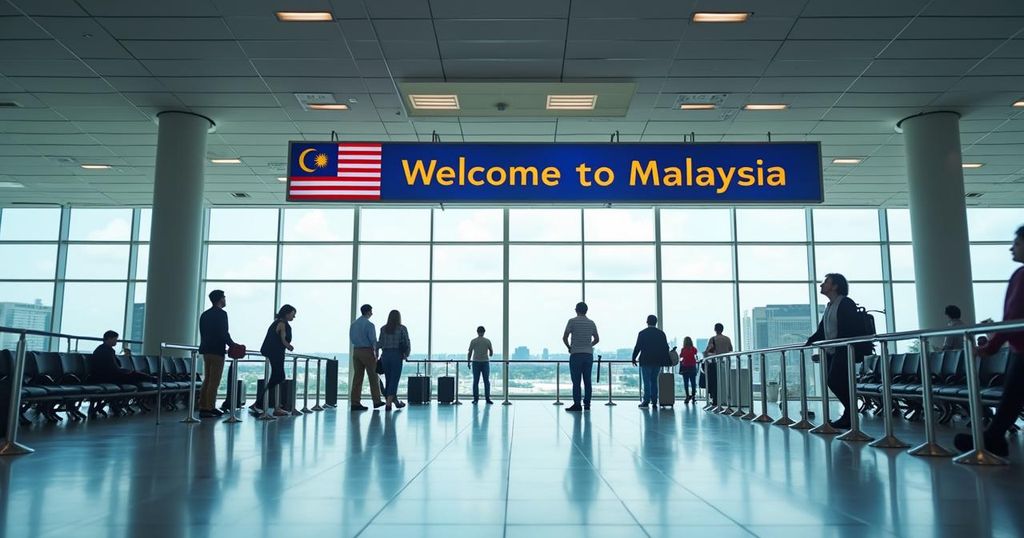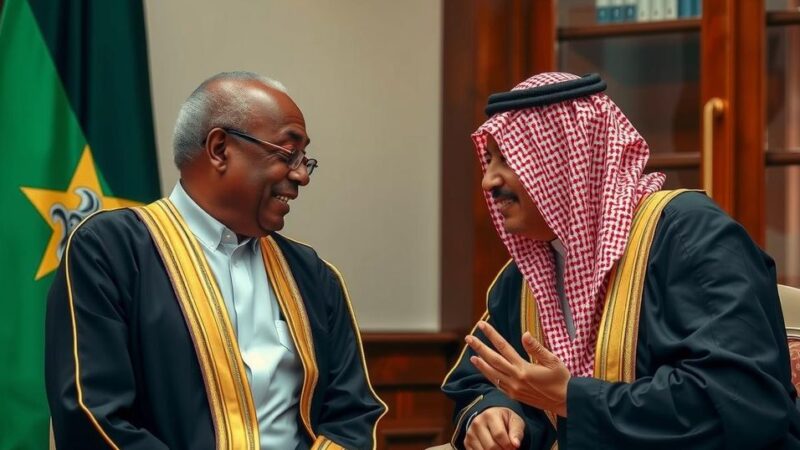Laos has successfully handed over the ASEAN chairmanship to Malaysia, with Laotian Prime Minister Sonexay Siphandone being praised for his leadership over the past year. The transition marked discussions on significant regional issues, including the situation in Myanmar and the South China Sea. Malaysia’s Prime Minister Anwar Ibrahim is poised to lead ASEAN towards its 2045 vision amid a more proactive approach expected from Indonesia under new leadership.
On October 14, 2024, during the leaders’ summit held in Vientiane, Laotian Prime Minister Sonexay Siphandone officially transferred the chairmanship of the ASEAN bloc to Malaysian Prime Minister Anwar Ibrahim. This transition marks a successful year for Laos at the helm of the regional grouping, demonstrating significant political and economic clout despite its relatively modest size compared to Indonesia, the largest economy in Southeast Asia. Prime Minister Siphandone’s leadership received praise for adhering to the principles established by ASEAN leaders in previous summits, particularly regarding the delicate issue of Myanmar. Detractors had anticipated a lenient approach from Laos towards the Myanmar military junta, which remains excluded from official ASEAN engagements due to its failure to comply with established ceasefire agreements and democratic restoration initiatives. Notably, the junta’s participation at the recent summit was granted only with consent from all ASEAN leaders beforehand. At the East Asia Summit, leaders from ASEAN and dialogue partners, including China and Japan, collectively addressed critical global matters such as developments on the Korean Peninsula and Russia’s military actions in Ukraine. In discussions surrounding the South China Sea dispute, ASEAN leaders underscored the necessity for self-restraint among all parties involved, emphasizing adherence to the 2002 Declaration on the Conduct of Parties in the South China Sea, to mitigate rising tensions. The Malaysian leadership under Prime Minister Anwar, who is well-versed in ASEAN operations, will commence its chairmanship in January 2025 with the theme “Inclusivity and Sustainability.” Expectations are high for Malaysia to not only wrap up outstanding ASEAN matters but also to lay down a robust framework for the bloc’s long-term goals aimed at realising its vision for 2045. In light of the transition, it is anticipated that Indonesia will adopt a more dynamic stance under the incoming leadership of Prabowo Subianto, contrasting with the previous decade during Joko “Jokowi” Widodo’s presidency. Notably, President Jokowi’s absence at the recent summit has been criticized as a missed opportunity. Key agenda items that require immediate attention include addressing the ongoing civil strife in Myanmar. Newly appointed Thai PM Paetongtarn Shinawatra has proposed hosting informal discussions on the matter in December, advocating for increased involvement from major regional players like China and India to aid in ceasing hostilities. Additionally, the expedited accession of Timor-Leste into ASEAN remains a priority. Both outgoing Prime Minister Siphandone and incoming Prime Minister Anwar intend to formalize this process, further validated by the presence of Timor-Leste’s PM Xanana Gusmao at the summit. Finally, Laos has distinguished itself by not capitulating to China’s influence during its chairmanship, as previous leadership did. There is now a mutual commitment from ASEAN and China to expedite discussions on a non-binding Code of Conduct concerning the South China Sea, a development aimed at fostering trust and stability in the region. As we bid farewell to Laos, we extend a warm welcome to Malaysia as the new chair of ASEAN.
This article discusses the recent transition of the ASEAN chairmanship from Laos to Malaysia during a summit held in Vientiane. The focus is on Laotian Prime Minister Sonexay Siphandone’s contributions and Laos’s approach to various regional issues, particularly concerning Myanmar, the South China Sea, and the accession of Timor-Leste into ASEAN. The article highlights the strategic importance of ASEAN as a regional bloc and sets the stage for Malaysia’s upcoming chairmanship under PM Anwar Ibrahim, alongside Indonesia’s evolving role in ASEAN under new leadership.
In summary, the smooth transition of ASEAN’s leadership from Laos to Malaysia reflects a commitment to regional stability and cooperation. Laos’s commendable tenure, underscored by proactive stances on contentious issues, has paved the way for Malaysia’s upcoming chairmanship. With pressing matters such as the situation in Myanmar and the South China Sea on the agenda, the new leadership is expected to forge stronger alliances and sustain ASEAN’s collective vision through efficient diplomacy and active engagement.
Original Source: asianews.network






